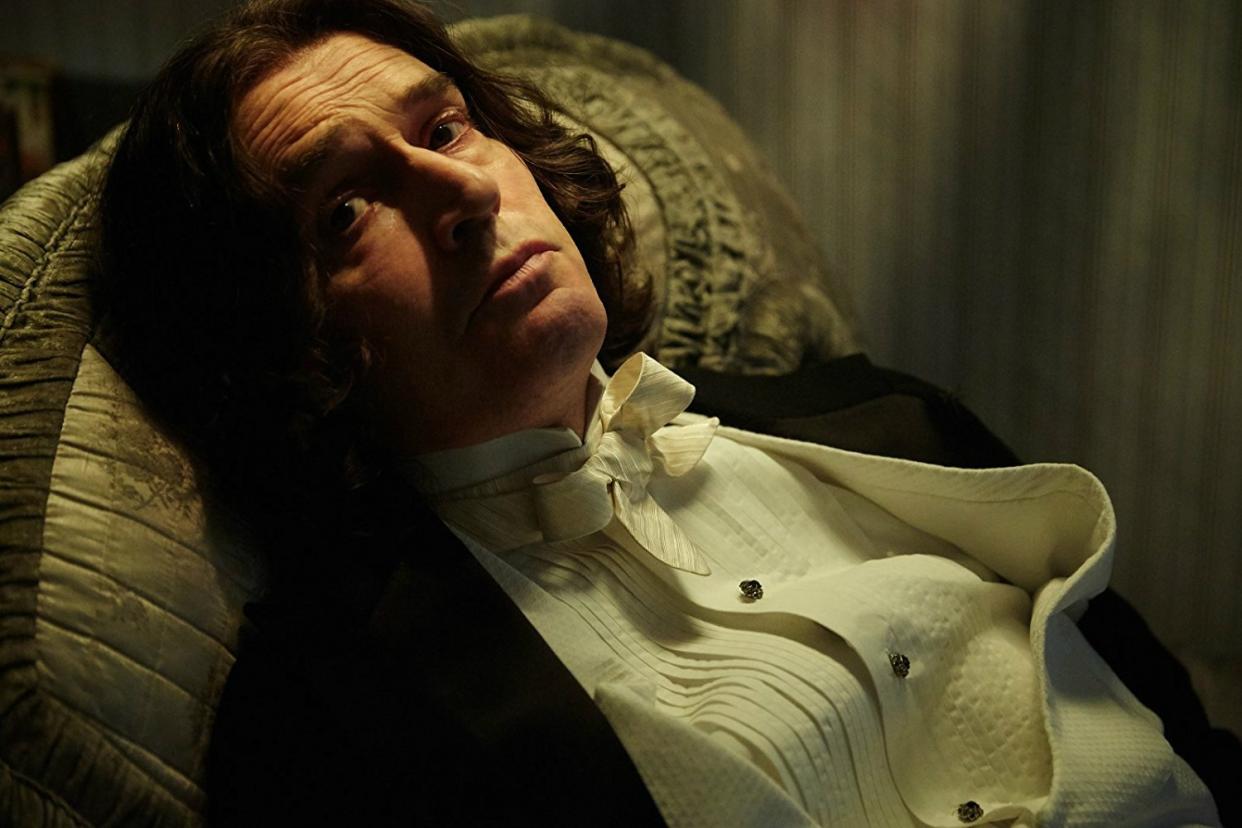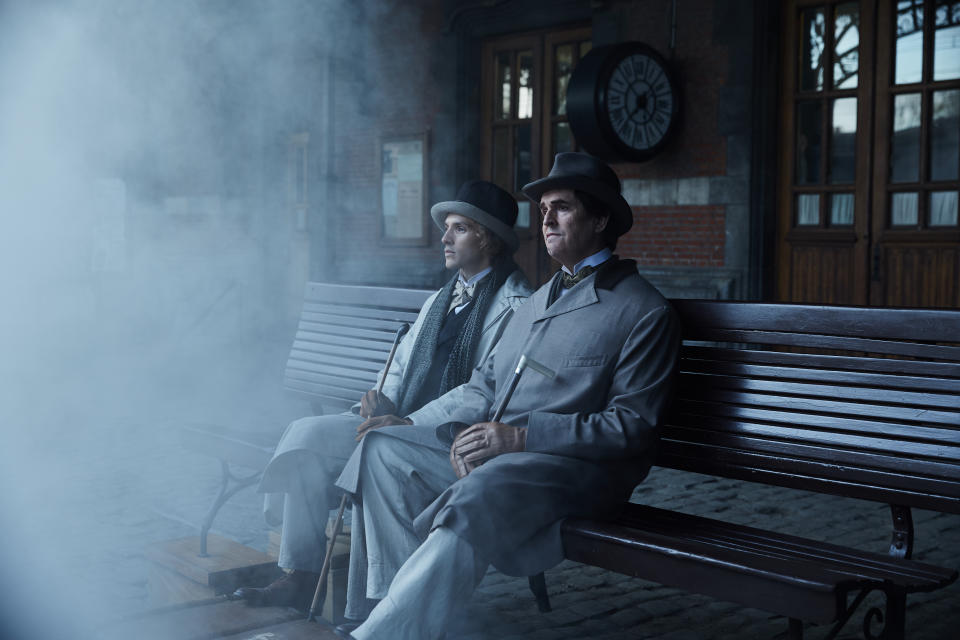Rupert Everett on his legacy, 'The Happy Prince' and why he didn't put sex in it (exclusive)

The Happy Prince is a film that Rupert Everett seemed destined to make.
There’s history between him and Oscar Wilde, the subject of his new movie, from appearing in the film adaptation of The Importance of Being Earnest to earning rave reviews as the legendary playwright in the 2012 revival of David Hare’s stage play The Judas Kiss.
There’s also the fact that they are both gay men working in an industry that has not always made it easy for them to live their life openly. Wilde was sent to jail for being a homosexual and exiled to France – which is where the film begins his story – while Everett has spoken about the lack of opportunities afforded to him because of what he perceives to be a homophobic industry.
Now with The Happy Prince, Everett not only shows his appreciation and compassion for Wilde’s notorious life but also showcases his own significant ability as both a writer and director as well as an actor.
This film isn’t a glossy, Hollywood retelling of Wilde’s life like some biographical dramas depict their subject; it’s gritty, dank and representative of the dark times that followed Wilde during his later life that continued to be both decadent and hedonistic.

“I think biopics can be quite depressing sometimes,” Everett tells Yahoo Movies. “I wanted it to be a voyeuristic film. I wanted it to be more like a documentary in a way, to be realistic and I wanted it to look still amazing.
“It’s quite difficult when you have a story with a lot of glossy dialogue. I didn’t want to fixate on the dialogue in dreary mid-shots, and wide shots and close-ups, I wanted the camera to sort of glance by so that it wasn’t centre-stage.
He credits the Dardenne Brothers for influencing the handheld camera shots that dominate his film, hoping to create a more fly-on-the-wall approach that follows Wilde “into his destiny,” though surprisingly there are no sex scenes despite the film’s romantic storyline and use of nudity.
“I don’t like snogging scenes,” Everett explains, “I don’t like snogging scenes on camera and the whole [sogging noises].
“I love porno, don’t get me wrong, but we haven’t really made the liaison between… except for Lars von Trier, what he did was really great because he actually shot porno. Sex to me on camera is a very difficult thing to pull off and I personally don’t like it.”
The Happy Prince is as much about Oscar Wilde’s life as it is his legacy but for Everett, who could consider this film as a landmark moment in his career, his own legacy is the last thing he’s thinking about right now.
“I don’t think about being remembered, but what I really want to do is continue to be engaged and keep working in this industry,” he says. “I’ve done it all my life, I feel I have things to say and I think as we go into this virtual world, the younger generation is moving in a very different direction so I think it is even more vital to have old fogey types expressing things too.
“Otherwise we’re going to lurch into the new, puritanical world of the millennial generation and I want to go down fighting against that.”
The Happy Prince is in cinemas now
READ MORE
Toni Collette refuses to watch ‘The Handmaid’s Tale’
Steve Trevor back in ‘Wonder Woman 1984’
‘Green Lantern Corps’ details revealed

 Yahoo Movies
Yahoo Movies 
